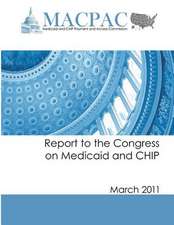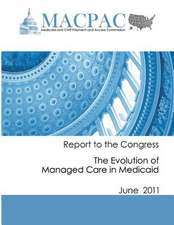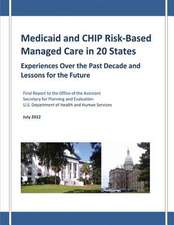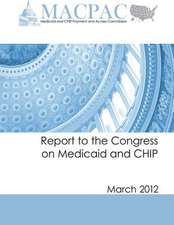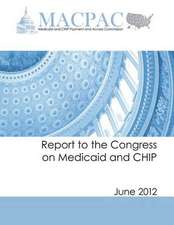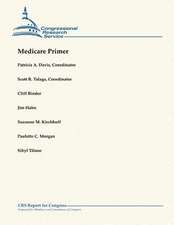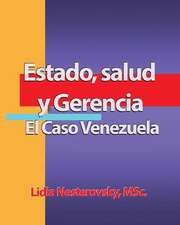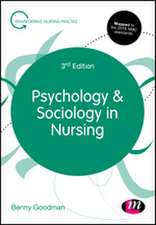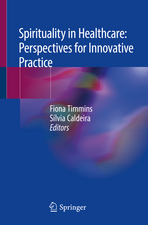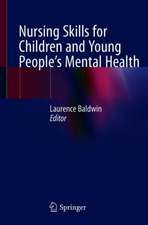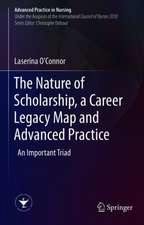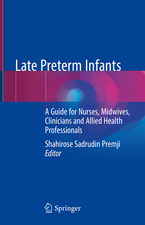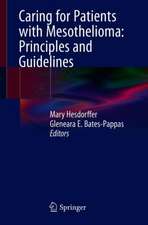Ethics and Pandemics: Interdisciplinary Perspectives on COVID-19 and Future Pandemics: Springer Series in Public Health and Health Policy Ethics
Autor Andrew Solaen Limba Engleză Hardback – 24 iun 2023
The COVID-19 pandemic has transformed all of our lives to such an extent that no single publication will ever be able to capture its complexity. The book acknowledges this complexity by embracing interdisciplinary dialogue. It is open to diverse points of view, different ethical systems, and a wide variety of academic disciplines. It suggests three broad avenues to exploring the subject:
- Ethics for Pandemics: What ethical theories are useful for pandemic living?
- Ethics in Pandemics: How are long-standing ethical dilemmas revealed in pandemics?
- Ethics of Pandemics: How should politicians and public health professionals create ethical systems of pandemic management?
In the chapters, the author joins theory and practice, providing an overview of the major ethical theories:
- Kant and Deontology
- Utilitarianism and Consequentialist Ethics
- Social Contract Theory
- Egoism and Altruism
- Virtue Ethics
Ethics and Pandemics: Interdisciplinary Perspectives on COVID-19 and Future Pandemics prepares readers to better understand ethical living during times of crisis. While written for students pursuing any discipline, it is particularly suited for those seeking degrees in public health, health care, political science, and philosophy. Furthermore, non-specialized readers and members of the general public will find the book of interest.
| Toate formatele și edițiile | Preț | Express |
|---|---|---|
| Paperback (1) | 524.95 lei 3-5 săpt. | +21.52 lei 4-10 zile |
| Springer Nature Switzerland – 25 iun 2024 | 524.95 lei 3-5 săpt. | +21.52 lei 4-10 zile |
| Hardback (1) | 783.39 lei 6-8 săpt. | |
| Springer Nature Switzerland – 24 iun 2023 | 783.39 lei 6-8 săpt. |
Preț: 783.39 lei
Preț vechi: 824.63 lei
-5% Nou
Puncte Express: 1175
Preț estimativ în valută:
149.95€ • 162.93$ • 126.04£
149.95€ • 162.93$ • 126.04£
Carte tipărită la comandă
Livrare economică 21 aprilie-05 mai
Preluare comenzi: 021 569.72.76
Specificații
ISBN-13: 9783031332067
ISBN-10: 3031332067
Pagini: 229
Ilustrații: XXII, 229 p.
Dimensiuni: 155 x 235 mm
Greutate: 0.53 kg
Ediția:2023
Editura: Springer Nature Switzerland
Colecția Springer
Seria Springer Series in Public Health and Health Policy Ethics
Locul publicării:Cham, Switzerland
ISBN-10: 3031332067
Pagini: 229
Ilustrații: XXII, 229 p.
Dimensiuni: 155 x 235 mm
Greutate: 0.53 kg
Ediția:2023
Editura: Springer Nature Switzerland
Colecția Springer
Seria Springer Series in Public Health and Health Policy Ethics
Locul publicării:Cham, Switzerland
Cuprins
Chapter 1. An Introduction to Ethics and Pandemics.- Chapter 2. Evaluating Assumptions About Human Nature Pre- and Post-COVID-19.- Chapter 3. Kant and Deontology: Understanding Human Dignity.- Chapter 4. Utilitarianism and Consequentialist Ethics: Framing the Greater Good.- Chapter 5. The Social Contract: Exploring the Concept of Freedom During Pandemics.- Chapter 6. Egoism and Altruism: Is Selfishness a Virtue?.- Chapter 7. Virtue Ethics: An Alternative to Theories of Right Action.- Chapter 8. Towards a Pragmatic Ethics in an Age of Pandemics, Environmental Crisis, and Social Disorder.
Notă biografică
Andrew Sola earned his Ph.D. from the University of East Anglia in Norwich, England. From 2004 to 2018, he was Professor of Philosophy and English at the University of Maryland Global Campus, where he taught philosophy, ethics, and English at a variety of locations in the UK, Italy, and Germany. His publications include scholarly articles on military ethics as well as philosophy. He is the co-author with PGA Professional Bruce Loome of The Philosophical Golfer, a two-volume history of philosophy. He is currently Professor of Business English at the FOM University of Applied Sciences in Hamburg, Germany, where he also teaches business ethics. He is a member of the board of Hamburg’s German-American Institute, the Amerikazentrum, where he produces the interdisciplinary podcast, The Trans-Atlanticist.
Textul de pe ultima copertă
This book is for readers who wish to understand the ethical implications of the COVID-19 pandemic — holistically — on communities, politics, the economy, the environment, international relations, public health, and, most importantly, on their own lives and their own futures. It also helps readers to think through the wide-ranging ethical implications of the new age of global pandemics.
The COVID-19 pandemic has transformed all of our lives to such an extent that no single publication will ever be able to capture its complexity. The book acknowledges this complexity by embracing interdisciplinary dialogue. It is open to diverse points of view, different ethical systems, and a wide variety of academic disciplines. It suggests three broad avenues to exploring the subject:
In the chapters, the author joins theory and practice, providing an overview of the major ethical theories:
Ethics and Pandemics:Interdisciplinary Perspectives on COVID-19 and Future Pandemics prepares readers to better understand ethical living during times of crisis. While written for students pursuing any discipline, it is particularly suited for those seeking degrees in public health, health care, political science, and philosophy. Furthermore, non-specialized readers and members of the general public will find the book of interest.
The COVID-19 pandemic has transformed all of our lives to such an extent that no single publication will ever be able to capture its complexity. The book acknowledges this complexity by embracing interdisciplinary dialogue. It is open to diverse points of view, different ethical systems, and a wide variety of academic disciplines. It suggests three broad avenues to exploring the subject:
- Ethics for Pandemics: What ethical theories are useful for pandemic living?
- Ethics in Pandemics: How are long-standing ethical dilemmas revealed in pandemics?
- Ethics of Pandemics: How should politicians and public health professionals create ethical systems of pandemic management?
In the chapters, the author joins theory and practice, providing an overview of the major ethical theories:
- Kant and Deontology
- Utilitarianism and Consequentialist Ethics
- Social Contract Theory
- Egoism and Altruism
- Virtue Ethics
Ethics and Pandemics:Interdisciplinary Perspectives on COVID-19 and Future Pandemics prepares readers to better understand ethical living during times of crisis. While written for students pursuing any discipline, it is particularly suited for those seeking degrees in public health, health care, political science, and philosophy. Furthermore, non-specialized readers and members of the general public will find the book of interest.
Caracteristici
Joins theory and practice with scholarly content and guidance for readers to develop their own ethical selves Includes questions and cases in each chapter to facilitate discussion in traditional, online and hybrid classrooms Is an accessible philosophical text addressing one of the most important issues ever faced by humanity



